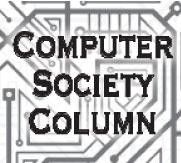
ICT or Computer Science is a key subject in the school curriculum in Sri Lanka. In the past, emphasis was given to using ICT as a tool in teaching other core subjects such as Science, Mathematics, and English rather than teaching ICT or Computer Science as a comprehensive subject.
Teaching ICT or Computer Science as part of the school curriculum has become a challenging task for teachers due to several reasons.
Fast evolving technology and the need to upgrade the latest knowledge and skills is a key issue. Although, being up-to-date is a requirement in any professional field, ICT teachers find it difficult to spend time acquiring the latest knowledge in ICT as it is moving fast into the future.
Young children share knowledge among peers, do experiments and learn. Therefore, young children appear to be smarter than the teacher at times. Teachers can encourage peer learning by providing initial guidance, showing reliable resources, and encouraging research and practical activities. Students’ findings can be shared and discussed at classroom sessions.
Curriculum
Changing the curriculum is a key requirement to keep the subject abreast with modern technology. I recommend changing the ICT curriculum every four years. Removing outdated topics and including newer areas is a must to make the subject content effective and useful.
Changing the curriculum means upgrading text books, syllabi, schemes of work, and examination paper structures, and retraining teachers. This process will keep curriculum designers busy full-time as it is an on-going project.
They can learn from international educational bodies which regularly upgrade curricula. It is more effective to include practical aspects in the curriculum and test theory topics through practical-oriented questions rather than getting children to write memorized answers or simply testing plain theory.
Teaching methods should also be changed to support the curriculum. Lack of availability of teacher training opportunities is a problem faced by ICT teachers island-wide. Relevant authorities should organise seminars, setup online forums, and allow teachers to take time off to participate in training sessions.
Lack of sufficient, functioning hardware and licensed software in school laboratories is another issue. It is often reported that computer lab facilities are not adequate due to hardware failures or software malfunctions.
To ensure a long life-span for computers and to keep them available at all times, computers should be maintained regularly.
Therefore, employing a lab technician is worth considering and justifiable.
First time
In the early 1980s, when Computer Science was available as a course for the first time in Sri Lanka, it was not meant for everybody who wished to learn computer science. Applicants had to face an aptitude test followed by a rigorous interview or viva. Presently, the only criteria needed is the applicant’s interest because there are a variety of avenues that one can follow to learn ICT and Computer Science.
Some educational institutes provide guidance when selecting courses according to the applicant’s skills and interests, but this is not feasible in a school because the school curriculum should teach the fundamentals of most of the different avenues.
For example, the Advance Level curriculum should consist of programming, databases, interface design, multi-media, networks, web developing, and the list continues.
This is where teachers face the biggest challenge: teaching a class of nearly 35 students with different skills, interests, and learning abilities. Sometimes, to make things worse,teachers have to teach in an environment with the constraints mentioned above.
Learning ICT and Computer Science as a subject does not merely increase students’ computer literacy. Students are taught to develop computer systems for other people to use.
Computational thinking, algorithmic design, logical reasoning, problem analysis and decomposing, presentations, documentation and programming arefundamental skills that students require to be successful in this field.
Children need to learn and improve these skills, should they be successful in the ICT or computer science profession. Parents should clearly understand that a child’s competency in using a computer and the ability to perform well in the Computer Science subject are two different aspects. Parents may consult the ICT teacher if the child does not produce satisfactory grades.
There are inherent problems that spring up as a result of the frequent use of computers including physical and mental health problems, social issues, and addiction to computer games.
It is the responsibility of ICT teachers to educate and convince students and parents about the possible dangers of using social media, health and ergonomic problems of prolonged use of computers and methods of avoiding them, and the importance of outdoor activities. These topics can also be included in the the primary school curriculum.
Manel de Silva,
Member, Computer Society of Sri Lanka
